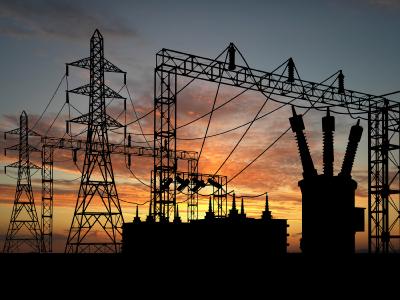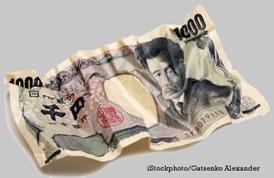
Knowledge: Apart from stock market gyrations, what are the worst economic aftershocks that we can expect from the disaster in Japan? Any supply chain disruptions? Where, what and by whom are these likely to be felt?
Witt: There’s always the impression that Japan must be one of the best-prepared countries for a disaster like this. I’m afraid it’s very clear now that this is probably not the case. If you just consider the fact that, so far, the country has been incapable of getting food to many of the survivors of the tsunami, one has to really wonder what the preparations were. You hear that food is not being delivered to the stricken areas because there’s no fuel available. Japan has a half a year’s worth of fuel supplies in a strategic reserve and as far as I know none of that has been released by the government. I think that what we are seeing here is not indicative of good preparation but rather the opposite. It’s better than the response in 1995 in Kobe but it is still not an efficient response.
In terms of the implications, I think the stock market gyrations will be the least impacted. Obviously some financial investors are going to lose financially and some financial investors are going to win. The stock market is not particularly important for the Japanese economy as a source of funding. In terms of outside funding, on average, Japanese companies only get about one-third of their funding needs from the stock market or from markets more generally and that can include bond issues.
The larger implications are going to be that this is a highly interdependent economy. We hear these days that the affected area only accounts for seven or eight percent of gross domestic product [GDP] in Japan, which is true, but this seven or eight percent of GDP - or part of it - will be inputs that are needed to produce more GDP elsewhere in Japan - and those inputs are missing. We also hear that there are rolling blackouts in terms of electricity and this, of course, is not only affecting the earthquake-stricken regions but also places like Tokyo which account for a lot more of GDP. This has an impact not only inside the country but it will have a larger effect on Asia in general because you see many sectors where Japan exports either in a pan-Asian supply chain or even a global supply chain. For instance, South Korea has already declared a state of emergency and companies like Samsung and LG are extremely concerned about missing inputs in the electronics industry which are sourced from Japan. As time passes, it will become much clearer about what exactly happens once these exports dry up all of a sudden.
Knowledge: How is this going to affect foreign direct investment into Japan? What about the confidence of bond holders?
Witt: In terms of foreign direct investment, the amount of investment that goes into Japan is relatively small. For bond holders, something like 96 percent or 97 percent of outstanding government bonds in Japan are held by Japanese investors. Certainly some foreign investors and some Japanese bonds could get cold feet and this could have a marginal effect, but, in general, this is very much a domestic affair.
Knowledge: What are the currency implications of all of this?
Witt: What you are seeing right now is the result of speculation by Japanese companies who may be choosing to repatriate profits. I think this short-term affect is likely to wear off. If you think about the amount of money that the Bank of Japan has injected into the economy whilst also reassuring investors that interest rates will fundamentally remain zero, the long term affect should be, at least in principle, that the yen will fall vis-à-vis other currencies.
Knowledge: Are there any comparisons to be drawn from this earthquake and the 1995 earthquake in Kobe?
Witt: Luckily some parallels are not to be drawn. Even though I criticised the disaster response earlier, it is actually much more effective than in 1995. You could assume that Japan is going to invest a lot in infrastructure and that should be good for economic growth. Perhaps. A lot of value has been destroyed and the money that is being put into reconstruction of the country will have to come from somewhere. Japan is a fairly wealthy country and what’s likely to happen is that you will see a transfer from the stock of wealth into rebuilding the infrastructure. This could certainly have some positive impact on GDP growth in the sense that maybe some of that stock of wealth would not have otherwise been spent.
Knowledge: What are the repercussions for national energy security and for energy markets vis-à-vis the nuclear reactor emergencies? What kind of impact is this likely to have on diversification away from fossil fuels?
Witt: The Japanese, for historical reasons related to Hiroshima and Nagasaki, are extremely concerned about nuclear contamination and clearly this has happened in this case. One has to wonder whether it will be possible for the Japanese government to pursue the same course that they have been pursuing for decades: to increase the share of nuclear power in terms of electricity production. There may well be a rethink and that is probably the appropriate response in any case.
Globally you already see the knock-on effects of this. Some of those responses are political and emotional in nature, but I think it’s fairly clear that this has not helped the whole idea of emphasising nuclear power in order to save the climate. The only logical choice moving forward for many of these countries and governments is to emphasise alternative energies even more.
Knowledge: Given what you said about the government’s inefficiency in handling the response to the situation, what could be the likely impact on the current administration?
Witt: The current administration has been described as frozen. They don’t seem to be particularly effective and I think ultimately they will pay a price for this. It’s not entirely fair because here you have the opposition party who for the first time is really at the helm in Japan, and they are the ones who are likely to get punished for the problems that are developing now and for an inefficient response to the crisis.
They are not entirely to blame because the system in which they operate is not the system that they put in place. It’s one that evolved while the Liberal Democratic Party was running Japan and the inability to deal with things effectively, decisively and with a rapid response is built into the structure of government and is thus relatively independent from who exactly is running the country. I would expect that the politicians who are in office now will be punished unless some strange psychology sets in and they are seen as the saviours of the Japanese nation.
Knowledge: Is there anything positive that can emerge from this disaster that will help Japan revive its economy and come out of its stagnation of the past two decades?
Witt: There are many myths about Japan – one is that it is extremely well prepared for disasters and another is that it is a high-tech nation. Another myth is that Japan has had a really difficult time. People believed it wasn’t a fast growing economy, but if you actually look at the increase in GDP per person in Japan in the 2000s, Japan actually did better than the United States. So this is one of the reasons why the system has had a hard time changing.
Now what does a shock like the quake and the tsunami do here? In the best case scenario, it would actually take the system away from this punctuated equilibrium, which is the point where Japan’s at now and basically reconfigure it to a better equilibrium. I am not sure that this is going to happen because the blame will not necessarily get pinned on the structure. I do think that’s where part of the blame for the response should go.
A lot of blame will be apportioned to unforeseen circumstances in terms of it being a natural disaster. I think part of the blame will also go to the individual politicians in charge and also to the Tokyo Electric Power Corporation. Will people actually go so far as to say we need to change the way Japan is actually run? I wish that were the case but I am not very optimistic about that.
My outlook would be that Japan will recover from the natural disasters. I don’t, however, really see that this particular event right now will lead to a Japan that functions fundamentally different five or ten years from now. I hope that I am wrong because I think some changes are necessary. By this, I mean improvements that are possible within the parameters that the Japanese consider desirable but regrettably I am not sure that the impetus from this event will be strong enough to produce that.
Knowledge: Thank you for joining INSEAD Knowledge.
For more on the response and impact of the earthquake and tsunami, please click here to view INSEAD's Humanitarian Research Group's review.
-
View Comments
-
Leave a Comment



No comments yet.